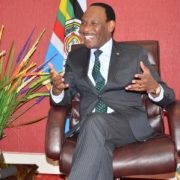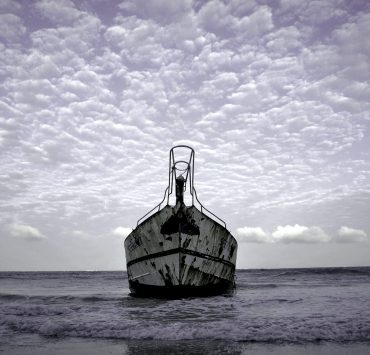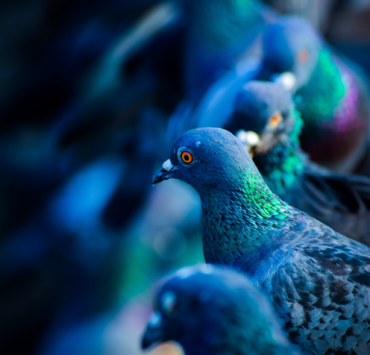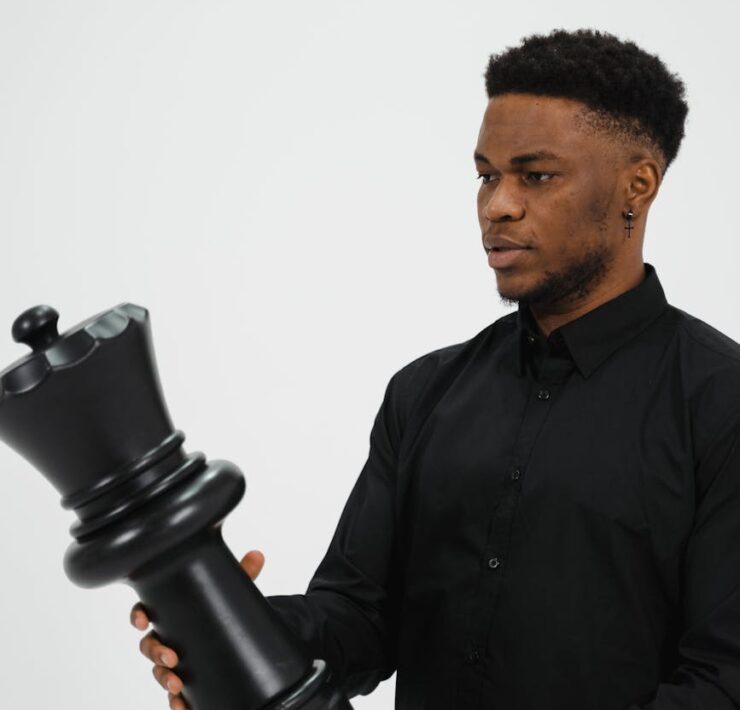Faith Stories
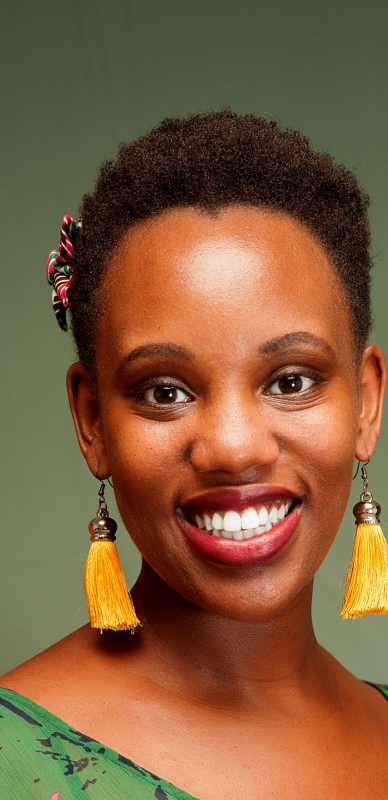
Chioma Phillips is the Editor of Msingi Afrika Magazine and…
ESTHER MBUGUA-KIMEMIA: CONQUERING ENDOMETRIOSIS
Esther’s life experience belies her age. The author, menstrual health and endometriosis ambassador, conversation-starter, trainer, wife and mom of two, turns 29 this year, but she has boldly faced and overcome challenges that few women have had to or will ever have to face in their entire lifetime. Now, she has allowed God to turn her experiences and pain into a journey of hope.
Her first book, Bloom, is a practical guide for a girl’s or woman’s period journey and her second book (which is brand new) is called Furaha and is a 10-week workbook that guides girls through puberty. She also has frequent menopause and menstrual support meetings and training for school children and parents as well.
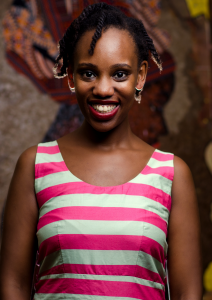
Tell us a little about yourself and your journey of faith.
My name is Esther Mbugua Kimemia, I am married and a mother of two children and I live in Mombasa. My background is in Psychology, but God has set me on an interesting course. Not one that I studied but one that life prepared me for. I like to create spaces where people can have difficult conversations, so I’m often the youngest woman in a room discussing menopause, because I believe it’s one of those conversations that needs to happen. I like to talk about periods. I like to empower girls and women to understand their bodies and also to empower their parents to guide their daughters through puberty.
How did you end up focusing on menstrual health, endometriosis and menopause?
This is the information I wish I had as a younger girl. What I was told about periods and what periods actually ended up being were two totally different things. I expected butterflies and twirling skirts, like everything you see on TV commercials, but it was nothing like that. I started my period before I was 10 years old, then it disappeared and came back maybe when I was about 11 or 12. It came back painful
but wit no dramatic symptoms. As I got into high school, no one told me that clots were not normal, because you’re just told here’s a pad, here’s your panty – you stick and then discard after that, but I often found out that one packet was never enough.
When I was about 15 years old that’s when I can say that my period got out of hand – it was already horrible – now this is like when it intensified. I went up Mt. Kenya, and it was exciting, my second time up the mountain so I don’t think it was the mountain that was the problem. But when I was up there, I had problems peeing. I would squat for half an hour literally and of course at that time my thighs are burning, it’s cold, and there’s nothing coming out. Eventually I peed all of like 10 drops, something really negligible. The next day on the way down the mountain, I had the worst period I’d ever had in my entire life. I couldn’t walk a really short distance without soiling my clothes. There was nothing I could do; I just threw the trousers away. When I got back home I told my mom I couldn’t pee, but she was like, “Can you pee now?” I was like “Yes”, she was like, “Okay, well it seems to have resolved itself.”
Then my period got worse. As a little girl, I always wanted to be a doctor, but at one point I was like, “Who am I kidding? My periods are already so much to handle, I’m not about to go and look at someone else’s blood.” I told my parents, “This is it, I’m done.” They were bewildered but they asked me if I had a plan. So I told them, “Well the next best thing is Psychology. No blood, but you can still help people.”
I think that’s one of the best decisions I made for myself. Sometimes God guides us without us knowing. I joined university and it was great, it was fantastic, I wish my period experience was too, but I can see how God was hiding me at the time. I started getting UTIs and yeast infections; they were just recurring. I was almost always sick. Even when I hadn’t finished antibiotics for one, I was starting medication for another. My doctor realized I wasn’t getting any better and sent me to see a Urologist, who did lots of tests and then said, “I can’t seem to find the problem, so I think we need to go in and see what’s going on.”
So I had my first surgery, they found I had masses in my bladder and at the end of it he gave me a diagnosis that wasn’t really a diagnosis. He just said I had chronic cystitis, which is basically ‘prone to infection’. I got super strong antibiotics and I went home. But the pain was still there so I was back to the medical officer at the school. Now, the reason why going to the university was the best decision I ever made was medical insurance was covering everything. The doctor said, “You know, I think it could be something different, I think I’m going to send you to a gynecologist.” Now gynecologists at this time are for pregnant women, married women, not young girls (I was 18) and there’s a particular side-eye that’s given to girls at the gynecologist. After more tests I was told it could be endometriosis and that they were going to book me in for surgery. This is Wednesday and he says we’re going in on Saturday. The good news was that he actually found endometriosis on my left ovary and my intestine. It wasn’t all in my head.
After years of painful, heavy periods, constant fatigue,
constipation, migraines, extreme pain in between her periods,
strong enough to cause her to faint on occasion and just
sheer frustration from the misdiagnosis, heavy medication,
lack of answers, Esther finally had a clearer picture of what
was going on. Some form of redemption from the stigma she
had faced from people around her who could not understand.
Endometriosis is a condition where the cells similar to the
lining of the uterus (endometrium) are found outside of the
uterus. The symptoms include excruciating period pains,
cramping, pain during or after intercourse, pain with bowel
movements or urination, heavy periods or bleeding between
periods, infertility, fatigue, constipation, diarrhea, bloating
among others.
Another thing that you’re never really told is how normal bowel movements are supposed to feel. I probably had my first normal bowel movement in my 20’s, because I was constipated all my life – but it was my normal. I never knew. I’d be more constipated closer to my periods but I just thought, you know these things are not even connected, so I always treated them in isolation. I treated the fatigue in isolation as well. After surgery the doctor put me on this drug that puts you into menopause. So at 19 I had menopause symptoms. So no periods, I’d get hot flashes, I added five kilos, was experiencing depressive episodes, and that was horrible. All this time I was just like “God, this is not what I signed up for. I know there’s supposed to be hardship but this is quite hard hardship!” I finally started to feel a little better; there were no periods, so at least there was some peace. One day when I was trying to shed the kilos that I added during this menopause, I felt a pain in my abdomen. It was like a tugging from within. I went back to see the doctor and he said, “I think your appendix has burst, so now we need to go in for surgery. A general surgeon and I will come in to do the adhesions.” So I ended up having surgery again. I woke up and found the surgeon didn’t use the same incisions, he made his own and the stitching was like so inconsistent. The first guy was really really neat the second one was not so neat. So I woke up and I’m like this is definitely not what I signed up for.
Meanwhile, I’m missing school, people at school don’t understand. There’s something about having an invisible illness that makes it harder to receive mercy and grace. In school I’m missing so many classes I’m just barely making it. I wish I had a semester break or something, that would have been really good. Afterwards I just kept having ovarian cysts. They’d grow then when you’re told it’s time to go for surgery, you start shaking. And then repeat the cycle again. One of the things about ovarian cysts is that it could lead to infertility, so here I am as a teenager just thinking wow I could end up not having children. Thankfully, by the time I had my first surgery I’d met, the man who would eventually become my husband. He was at the time just a person I had met, but he stuck through it all, and with time it became more. I was like we need to talk about the fact that I could not have children, he simply said, “Okay, but I’m marrying you for you, not because of your ability to have children.” That really helped.
I got married at 21 and I think it’s one of the best things that happened. By this time I was still in pain, and I was on different types of contraceptives, just different things to try and make the pain go away. Then we moved to Mombasa and I took a very stressful job that made me even feel sicker, like now I was just having crazy cysts. I woke up one day and I was like, “You know what? Not this. I don’t know what, but not this.” I decided I wanted to write, but I couldn’t quite figure out what I wanted to write or how I wanted to write. Thankfully, the next year I got pregnant. It was good to just be pregnant. I didn’t have any drama other than a bucket load of fatigue. I became a mom and I can say that I feel like motherhood changed me and actually set this ball rolling. There is the belief that endometriosis can be passed down through the genetic pool, but that one I have refused and it’s not denial but I’m like, “Lord, I think I’ve carried it for all other generations and this has to end.” I started to think and I realized I wanted girls to know what I wish I knew. I wanted to talk to girls and moms as well, because socialization can actually make a huge difference. How you are socialized from the beginning, what you believe from the beginning, if you believe it is part of the curse, you will walk around feeling like you are cursed, if you believe that God’s redeeming love still moves within this, then you will still experience that. I believe that one of the greatest things that you can give a woman is to help them understand their body because no one can ever do it for you and I think it’s even part of God’s desire for us.
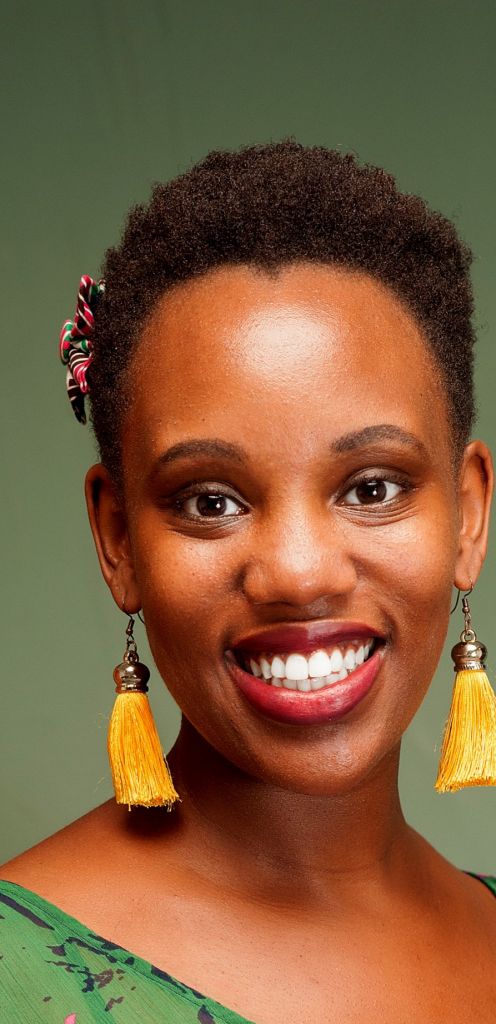
I decided to write a period diary to tell girls how a period should look, how a period should feel, you know the things that no one tells you about – it should be red, but which red? There are so many shades of red. Should it have chunks? Should it not have chunks? Should it hurt? Where should hurt? Where should it not hurt? And let’s define hurt, because that’s another thing that’s so ambiguous. Should it hurt that I can pop a painkiller and go and do whatever I need to do? What about when I can’t leave my bed, does it still fall under normal? There are many times I’ve not left my bed because of my period and still been told it’s normal. What is normal? It’s raising a generation that is experiencing it differently and also knowing what they’re taking in. There are effects that I’m living with until today. One of them is, you lose bone density when you go on certain medications and I wish I had known because when you’re put on such a drug you should be put on calcium, which I was not aware of.
I have seen painful affliction and I have seen the Lord’s healing hand. And you know sometimes you want healing to be instantaneous but I’ve also seen the process of healing and it’s God healing my body and also God healing my mind as well, God healing my emotions; those parts of me that have been fragmented, those lies that I have believed. So you know just allowing God to rewrite history. I would tell people that I am tired then hear a different label, “You’re lazy.” Even getting labels, silent labels, as the one who always has ‘those issues’ and you know ‘those’ is heavy, eh? It’s really weighty because it’s almost like a humble insult when you put it that way. It’s now a blessing in disguise because then I’m the person that ‘those’ people go to ask ‘those’ things. Now I can laugh about it, then I used to be like “God, really this is embarrassing.” Explaining “you know my uterus and its lining were not agreeing…” it’s so complicated. I’ve seen the shame and that’s what I want to take away but you know I believe that God has actually given us the power and the boldness to actually go and break those things that are not supposed to be. I have seen God’s redeeming power. I have seen His healing because I can have painless periods. You know
that’s something I could never have imagined. It might not have been overnight but I’ve seen a gradual improvement. It’s not always rosy because I might still struggle with hormonal issues, but it’s okay, we’re not where we were, I can take this, this is fine. I have seen that side of God in my life, where the darkness has been overwhelmed by the light.
I have set up a Community Based Organization (CBO) now, in Mombasa, basically to help women. It’s called The Yellow Flower Initiative and it is a baby of Yellow Endo Flower. Yellow is the color of hope and the Yellow Flower Initiative is to spread hope, because there is hope. I don’t think that Jesus can be in a place and there is no hope.
How did you not give up?
If giving up was a solid plan I would have. Like, we are giving up and then we will do… Giving up is not a plan. We can say it’s a stopover, but it’s not a plan.
How were you able to make it through the process?
I think that God was still there even in those moments of despair when no one else would understand. He was still the One that I was crying out to and I feel like God carried me. I have never doubted God’s love for me. There are times I may have taken a break and been like you know what God, this doesn’t feel like love; but I’ve never doubted that God loves me. I’ve never doubted that He’s for me.
How did you deal with the doubt of being able to have children?
What do you do? Sometimes you’re between a rock and a hard place and you just have to figure it out ahead, but right now you have bigger fish to fry because it’s for survival. There were doctors convincing me to have children, even at 19, I’d walk in for an emergency jab for pain and the nurses would be like have you considered having a child? I kept saying, you know, I want my mother, I’m not ready to be someone else’s mother. But God is still the One Who gives the children through the way that He chooses. By His pure grace, for the glory of His name.
Were you surprised that you were able to have kids after all that?
When the children came, it was a beautiful addition but I can’t say I was surprised. I feel like people were more surprised. People are usually astonished, like ‘what did you do?’ Nothing.
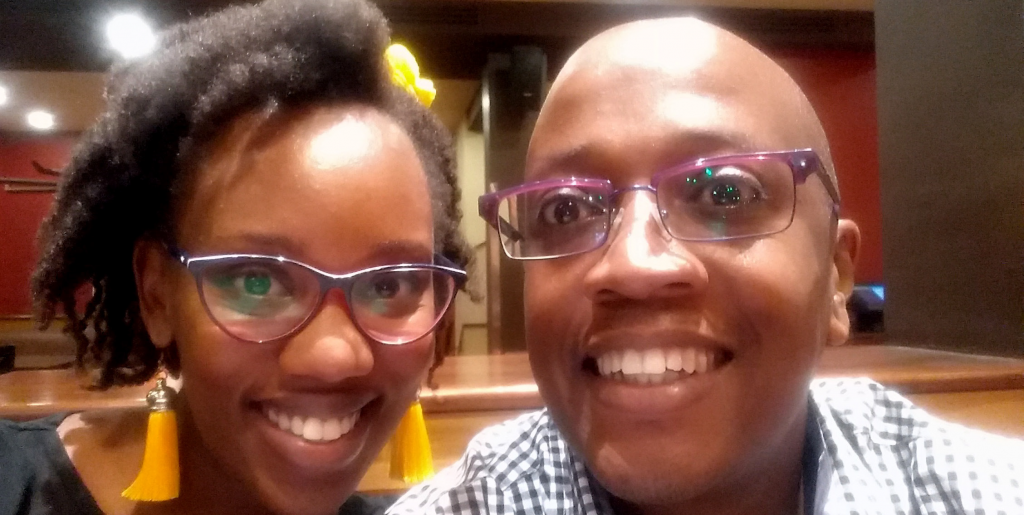
How did your husband take it, was he supportive? What was the effect on your husband and kids?
My husband is my greatest supporter. His support has never faltered. I think that because he always kept me focused on God, it was easier. That he was always praying for me even when he didn’t understand, he was still praying, he was still reminding me of God’s love. He’s part of Yellow Flower Initiative and is passionate about walking with men, because it takes a toll on you because, some of the other aspects of endometriosis I may not have mentioned are it affects your ability to earn, sometimes you can’t just go to work and not all employers are extremely patient and waiting for you to get to fullness of health. There could be pain during intercourse, which does affect your marital bed.
Endometriosis is more than just a woman’s disease. It affects families and because of that it affects the society as well. So he has been a pillar of strength and he is looking to walk with men who are also looking for support. When I had children, the part that I struggled with was always the fatigue and he was always keen to step in. I can’t say there was ever a day I felt alone on this journey, because he was there. In terms of my parenting, would I say it’s had an effect? I guess just the exhaustion or if there’s pain at the time but, by God’s grace, it’s not been as bad as it used to be. It’s like a different chapter altogether.
What do you think of the cost of sanitary products?
The cost is too high. I believe periods are beautiful. Are there certain things in our environment that make us feel otherwise? Rightfully so. If I have to work or sell my body just to be able to afford to take care of myself during this time, there’s no beauty there. I think what we are seeing is just a representation of what society believes about menstruation. Because if you believe it is beautiful if you believe it’s a natural process then governments will actually have to help make girls go through this in a safe and hygienic manner each and every month. I think it’s more than just reducing the cost of sanitary towels, it’s also just making sure that there are things that keep the quality at par. So that we’re not just getting cheap sanitary towels because then there are other infections that can come up from the cheap sanitary towels. I could have sanitary towels that are making me sick or giving me allergies so it’s just being able to make sure that the needs of the women are at the heart of government.
Why do you say that periods are beautiful?
I think because that’s how God created us to be. When you actually watch and think that my body is working the way it’s supposed to be working, my body is giving me a monthly summary of my hormonal levels, my body is doing what God created it to do, that is beautiful.
What would be your advice to women, young people that are going through this same thing or that might go through this same thing?
Believe yourself and stand up for yourself. Go and get the help that you need. See a doctor, don’t be afraid to seek a second opinion or a third opinion. Go where you feel like you’re heard or where you feel like you’re understood. Don’t stop doing your research. Don’t give up on God. Find a support network of those who are willing to walk with you, who are willing to love on you.
Thank you Esther for sharing your story. We know that it will be a source of hope and inspiration to many.
For anyone reading this article and who is going through the same issues or knows someone going through them, let the story of Esther Kimemia be a source of faith, hope and strength for your journey towards healing. And also know that it is not a hopeless situation. God loves you and we do too.
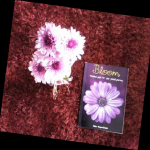
About her book “BLOOM”
Bloom talks about menstruation, and it draws from Esther’s personal journey with her menses. In her words, she says “After a long journey with endometriosis and the other symptoms that it comes with, I decided to share the knowledge I wished I knew as a teenage girl.”
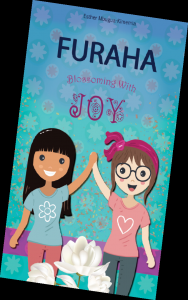
About her book “FURAHA”
Furaha is a 10-week workbook that guides girls through puberty, helping them understand their bodies, themselves, friendship, self esteem among other issues, with a friendly aunty guiding them through. Furaha will be released very soon.
To get a copies of her books, please get in touch:
yellowendoflower@gmail.com or +254-746-622-833
To share and publish the story of your faith walk with God, with us, please use the contact below. God bless you. wehearyou@msingiafrikamagazine.com
What's Your Reaction?
Chioma Phillips is the Editor of Msingi Afrika Magazine and the host of Msingi Afrika Television. Her hope is to see the Truth shared, with all who will listen, for the transformation of the people and the continent of Afrika - and the world. She believes passionately in the critical role that Afrika and Afrikans have to play on earth right now and hopes to ignite the spark that will cause them to see and believe who they are, so that they can live out their Truest lives for the remainder of their days.








